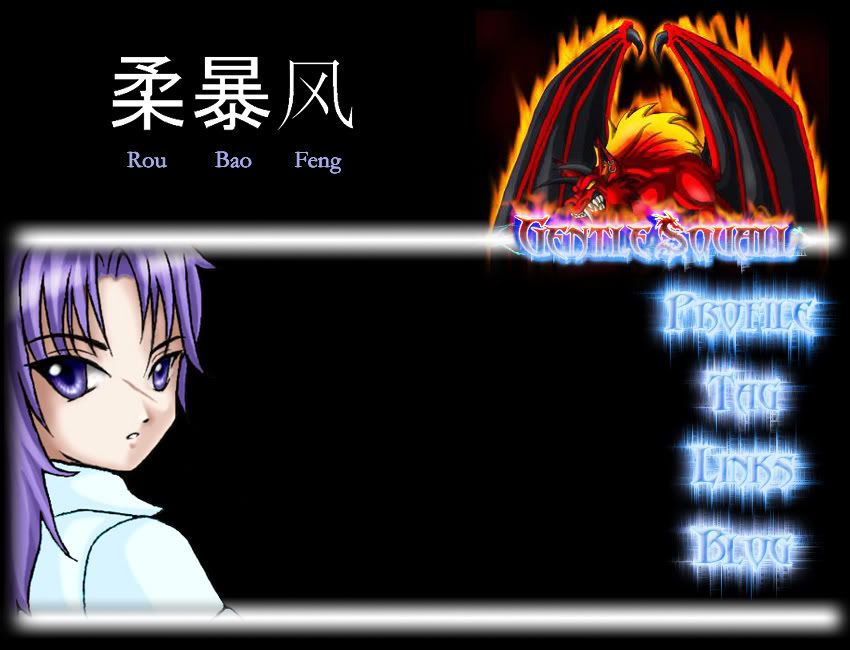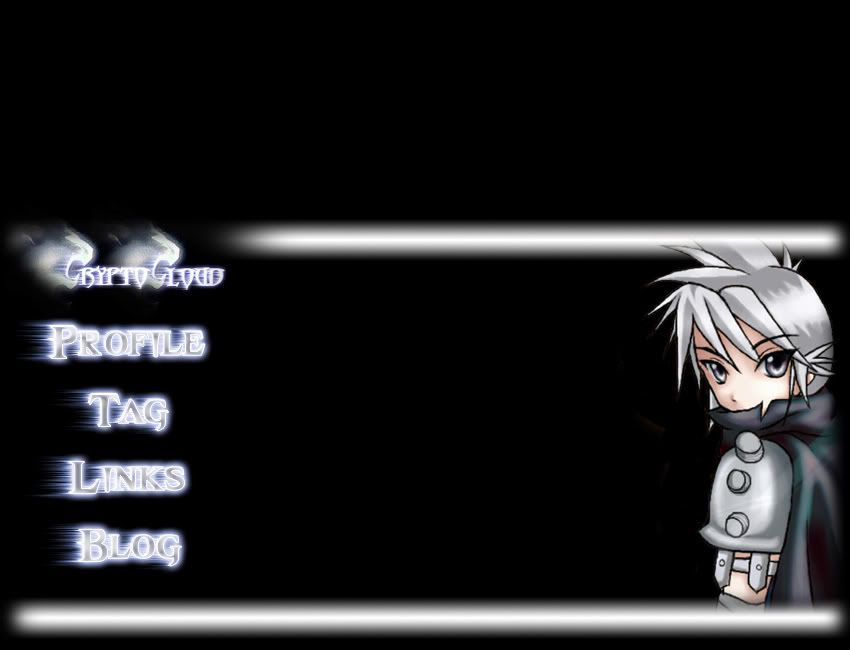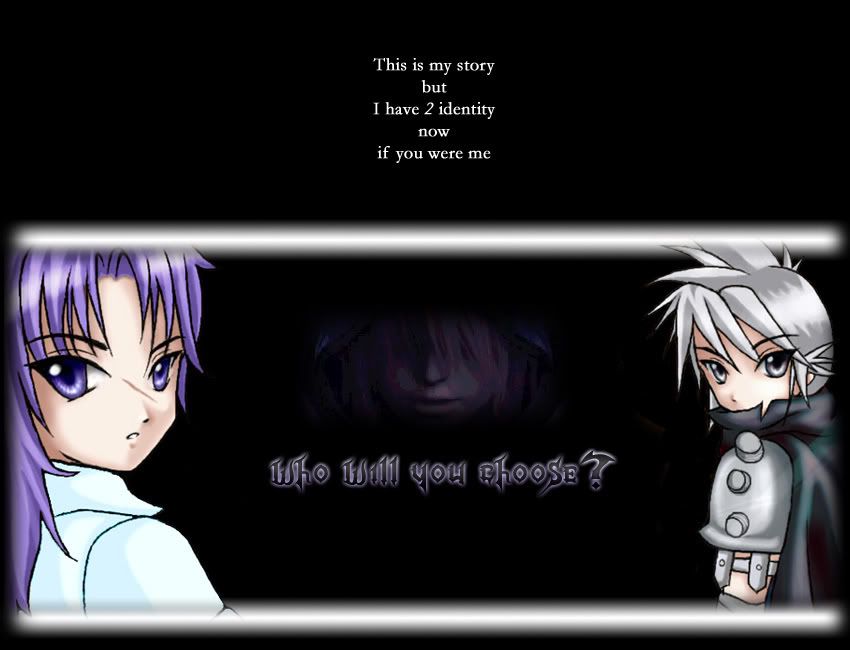









Name: GentleSquall
Class: Guardian Force
Age: Too old for you
Element: Plasma
Weapon: Plasma Crystals
Special Skill: Miraculous Phenomenon
Love: Everything
Hate: Nothing
Story:
The Alpha of all Guardian Forces.
Name: CryptoCloud
Class: Nobody
Age: Nobody Knows
Element: Anti-Matter
Weapon: Unknown
Special Skill: Better Left Forgotten
Love: Nothing
Hate: Everything
Story:
The Omega of Nothing.
INSERT TAGBOX HERE
www. .www
wwww wwww
wwwwvwwww
wwwwwww
wwwww
www
w
: |Friend's blog| :
Æ private blogskin
Æ UIR blog
Somebody
Somebody
Somebody
Somebody
Somebody
Somebody
Somebody
Somebody
Somebody
Somebody
Somebody
Somebody
Somebody
Somebody
Somebody
Somebody
Somebody
Somebody
Somebody
: |Archives| :
: |Friend's blog| :
Æ private blogskin
Æ UIR blog
Nobody
Nobody
Nobody
Nobody
Nobody
Nobody
Nobody
Nobody
Nobody
Nobody
Nobody
Nobody
Nobody
Nobody
Nobody
Nobody
Nobody
Nobody
: |Archives| :
:: Identity Crisis ::
The identity is "a subjective sense as well as an observable quality of personal sameness and continuity, paired with some belief in the sameness and continuity of some shared world image. As a quality of unself-conscious living, this can be gloriously obvious in a young person who has found himself as he has found his communality. In him we see emerge a unique unification of what is irreversibly given--that is, body type and temperament, giftedness and vulnerability, infantile models and acquired ideals--with the open choices provided in available roles, occupational possibilities, values offered, mentors met, friendships made, and first sexual encounters." (Erikson, 1970.)According to Erikson's stages, the onset of the identity crisis is in the teenage years, and only individuals who succeed in resolving the crisis will be ready to face future challenges in life. But the identity crisis may well be recurring, as the changing world demands us to constantly redefine ourselves. Erikson suggested that people experience an identity crisis when they lose "a sense of personal sameness and historical continuity". Given today's rapid development in technology, global economy, dynamics in local and world politics, one might expect identity crises to recur more commonly now than even thirty years ago, when Erikson formed his theory.
Build an air castle
on Sunday, March 22, 2009, 3:26 AM
:: Identity Crisis ::
The identity is "a subjective sense as well as an observable quality of personal sameness and continuity, paired with some belief in the sameness and continuity of some shared world image. As a quality of unself-conscious living, this can be gloriously obvious in a young person who has found himself as he has found his communality. In him we see emerge a unique unification of what is irreversibly given--that is, body type and temperament, giftedness and vulnerability, infantile models and acquired ideals--with the open choices provided in available roles, occupational possibilities, values offered, mentors met, friendships made, and first sexual encounters." (Erikson, 1970.)According to Erikson's stages, the onset of the identity crisis is in the teenage years, and only individuals who succeed in resolving the crisis will be ready to face future challenges in life. But the identity crisis may well be recurring, as the changing world demands us to constantly redefine ourselves. Erikson suggested that people experience an identity crisis when they lose "a sense of personal sameness and historical continuity". Given today's rapid development in technology, global economy, dynamics in local and world politics, one might expect identity crises to recur more commonly now than even thirty years ago, when Erikson formed his theory.
Build an air castle
on Sunday, March 22, 2009, 3:26 AM



